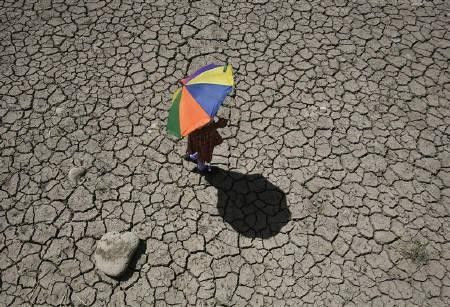Monsoon Politics: Why It Can’t Rain Reforms In India

India's much-awaited "second wave" of reforms is likely to be delayed due to the dilly-dallying monsoon. Prime Minister Manmohan Singh, who doubles as the finance minister, is expected to hold the crucial policy decisions on allowing the FDI in retail sector and hike in diesel prices until at least the second week of September, Reuters has reported quoting official sources.
Officials and the ruling party members said that the renewed opposition from the partners of the ruling United Progressive Alliance and the poor monsoon would prevent the government from taking decisions on reforms and fuel price hikes.
Investors and economists were expecting a positive action in the policy front after the presidential elections that were held last week. Allowing the FDI in multi-brand retail has been a long-pending demand from the global investors, but the move is opposed by several political parties, both in the ruling and opposition coalitions.
Though the government brought the proposal to allow the FDI in the key sector last year, it had to back out after the strong opposition from traders and political parties. The opponents of the move point out that opening the retail sector will be fatal to the livelihood of millions of small traders across the country as it will lead to job losses.
"We urge the government not to open up the retail trade to FDI (foreign direct investment) any further," Samajwadi Party leader Mulayam Singh Yadav wrote in a letter sent to the government last week.
The government, which is seeing a tough time ahead with reports of shortage in rain this year, will not be in a position to take a firm stand against its partners or the common man without arriving at a consensus.
"Such an announcement will not be made unless a political consensus is reached," an unnamed party leader was quoted as saying by Reuters.
Sources say that efforts are being made to build consensus among the political parties by "allaying their fear regarding the issue." However, this is easier said than done considering the complex political equations and vote bank politics in India.
The monsoon rains have been playing hide and seek in past two months, contrary to the earlier forecast of normal rainfall by the meteorological department. The monsoon plays a vital role in the agrarian-based Indian economy. As the vast majority of its farm lands are rain-fed, a decline in monsoon spells doom for the agriculture and related sectors.
The food price inflation, which is in double digits, will spiral further if the shortage in rain results in a fall in agricultural production, limiting the government and the Reserve Bank of India's elbow room for any kind of policy decisions.
The much-awaited diesel price hike as well as the cut in subsidy for kerosene and cooking gas also will have to wait.
A rise in the prices of diesel and kerosene will affect the farmers as low rains will make them depend more on diesel to pump water for irrigation.
Reforms that directly affect the common man and the farmers will be suicidal for the government since it has to face strong protests during the upcoming monsoon session of the Parliament. Moreover, some states are going for elections later this year, and an unpopular decision for the sake investment might not be digested by the "vote banks" of the ruling Congress party.
© Copyright IBTimes 2025. All rights reserved.






















